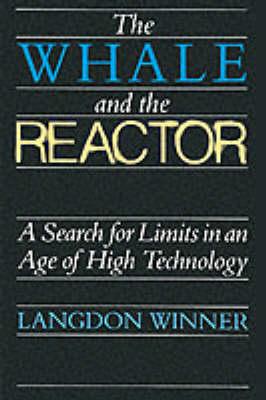Overview
""The questions he poses about the relationship between technical change and political power are pressing ones that can no longer be ignored, and identifying them is perhaps the most a nascent 'philosophy of technology' can expect to achieve at the present time.""--David Dickson, New York Times Book Review ""The Whale and the Reactor is the philosopher's equivalent of superb public history. In its pages an analytically trained mind confronts some of the most pressing political issues of our day.""--Ruth Schwartz Cowan, Isis
Full Product Details
Author: Langdon Winner
Publisher: The University of Chicago Press
Imprint: University of Chicago Press
Edition: New edition
Dimensions:
Width: 15.00cm
, Height: 1.60cm
, Length: 23.00cm
Weight: 0.339kg
ISBN: 9780226902111
ISBN 10: 0226902110
Pages: 200
Publication Date: 15 January 1988
Audience:
College/higher education
,
Professional and scholarly
,
Undergraduate
,
Postgraduate, Research & Scholarly
Format: Paperback
Publisher's Status: Out of Print
Availability: Awaiting stock

Reviews
There is a well-established philosophy and history of science. There is also a history of technology. Only recently, however, has there been an attempt to develop a philosophy of technology. It is that level of discourse that political scientist Langdon Winner addresses in these thoughtful, stylishly expressed essays, most reprinted from scholarly journals. Winner defines technologies as forms of life. As they become woven into the texture of everyday existence, he says, the devices, techniques, and systems we adopt shed their tool-like qualities to become part of our very humanity. And he quotes Marx: As individuals express their life, so they are. The immediacy and intimacy with which technologies are assimilated and affect human life and behavior may explain in part why philosophical questions have been so long in coming. That, and the fact that Western culture is so imbued with the idea of progress. Winner examines the flaws in these arguments in several essays on technology as reform and revolution, striking hard at the present mythinformation on the beneficent fallout of the computer revolution. Elsewhere he explores the non-neutrality of technologies. Some developments, like the atom bomb and nuclear power, are intrinisically authoritarian, requiring a strict hierarchical control. Others carry implicit political and social implications. A striking example cited by Winner was the construction of overpasses on Long Island's parkways when Robert Moses was in power. These all have exceptionally low clearances - the better to prevent the parkways' use by buses that would have transported the poor and ethnically undesirable to Moses' beloved Jones Beach. In other sections, Winner examines the small is beautiful theme, the easy but invalid association of decentralization with the good, the demise of the Whole-Earth movement, the debasement of the concept of values, and the risky business of using risk assessment, with all its cost-benefit formulas and tradeoff type of thinking, as a way to bury real hazards to life and environment. The title and final essay reveal Winner's impassioned sensibility as he relives a moment when he viewed the Diablo Canyon nuclear reactor and saw in the distance a spouting grey whale. What are the solutions? Can limits be set and how? Here, Winner like other philosophers does better at pointing the finger than proffering a plan. His essays are designed to wake people up to the semantic games policy-makers play; to goad people into thinking responsibly and contributing to decision making. In this he succeeds very well. (Kirkus Reviews)
Author Information
Langdon Winner is professor of political science at Rensselaer Polytechnic Institute and the author of Autonomous Technology.



